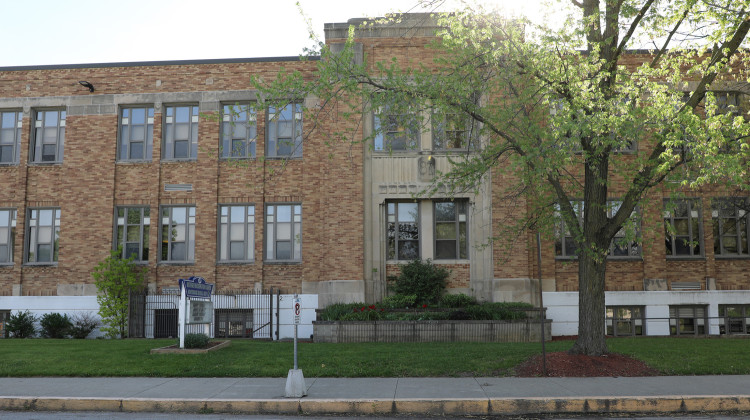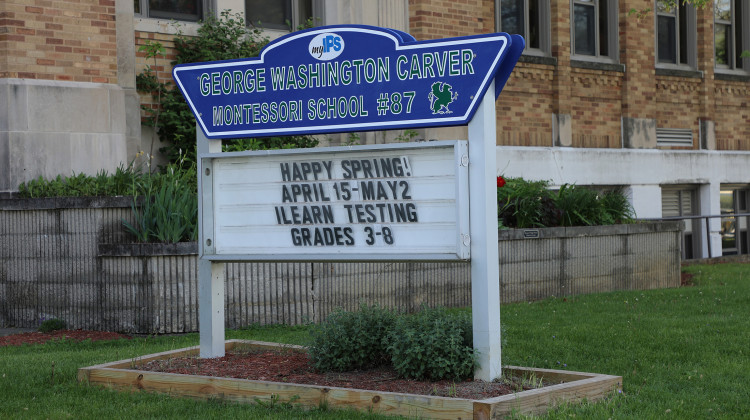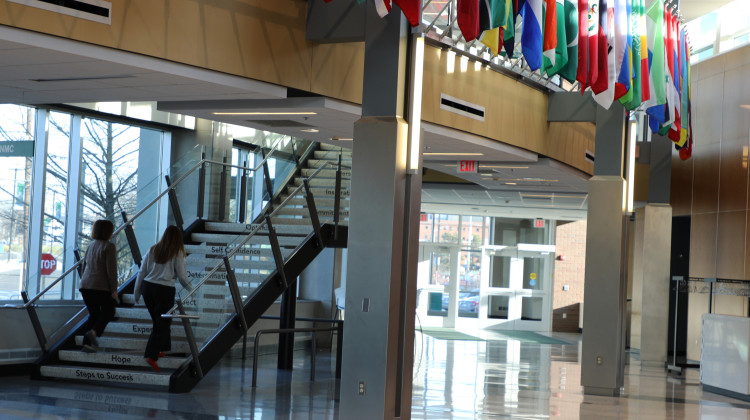
Hundreds of pre-school-aged children visited the Children's Museum of Indianapolis Thursday morning for a vocabulary lesson.
Christopher AyersAbout 250 pre-school-aged children and their teachers gathered at the Indianapolis Children’s Museum Thursday morning to help set the Guinness Book World Record for largest vocabulary lesson.
PNC Financial Services hosted the event as part of its “Grow Up Great” initiative, which promotes the importance of early learning in children’s early development.
More than 4,000 children participated across 15 states and the District of Columbia — including more than 300 here in Indiana at two locations — the Children’s Museum and another location in Fort Wayne. The event aimed to raise awareness of just how important word acquisition can be early on in a child’s development.
"A child who comes from an underserved family will hear 30 million fewer words by the time they’re aged 4 than a child from a family with at least one professional parent," says Connie Bond Stuart, PNC’s regional president in Central and Southern Indiana.
She says that 30-million-word difference can tremendously impact a person’s life.
"As a result these kids end up starting school 18 months behind, and they have difficulty closing the gap to be successful in school and ultimately their careers," Stuart says.
The vocabulary lesson was made up of words from the book “Mr. Tiger Goes Wild.” At the Children’s Museum, students sat on the floor in front of their teachers and went over individual words pulled from the book, like "stripes."
One of those students is 3-year old Cayden from Avon — who says he’s excited about one thing in particular on his first trip to the Children’s Museum.
"I’m going to look at dinosaurs," he says.
But he says the vocabulary portion of his visit is important too, because he likes to learn.
Christopher: What do you like most about learning?
Cayden: I’m learning how to do stuff.
Christopher: So you can grow up and be successful?
Cayden: Yeah.
Christopher: What do you want to be when you grow up?
Cayden: Ninja Turtles, I got a Ninja Turtles costume for Halloween.
Christopher: What’s your back-up plan if Ninja Turtles doesn’t work out.
Cayden: They fight like this — (provides a demonstration)
Cayden demonstrates some of the requisite moves for his chosen profession and runs off to join the rest of his group. And while a kid like Cayden may or may not to grow up to be a Ninja Turtle, Early Learning Indiana Vice President Marsha Hearns Lindsey says words are a vital part of establishing dreams for the future, whether that dream is to become a doctor or a crime-fighting, pizza-eating amphibian.
"Getting children excited about words and vocabulary words and what they mean and what you can do with words, is just a phenomenal experience," Lindsey says.
And Lindsey says she wants every young child to have that opportunity to play with words and believes the recent emphasis on early-childhood education in Indiana has the state on the right path.
"I know we’re heading in the right direction," she says. "I’m so glad that Indiana is catching up with what national studies have told us over the many years that building the foundation right now for young children as early as birth is really what’s going to make a difference in the children’s lives."
Stuart agrees, saying she hopes the Indianapolis City-County Council and Mayor Greg Ballard can soon come to an agreement on how to fund they mayor’s pre-kindergarten portion of his public safety plan. She also says she hopes the governor accelerates his early education agenda beyond the five counties participating in the state’s pre-K pilot, even in light of his decision to stop pursuing federal money to fund pre-K programs.
"I have to believe at heart that all of our political leaders really want to do the right thing for this community, to strengthen and to help the kids who need it the most instead of falling out of society in negative ways," Stuart says.
She says she’s optimistic the state will continue to see progress.
 DONATE
DONATE






 View More Programs
View More Programs



 Support WFYI. We can't do it without you.
Support WFYI. We can't do it without you.